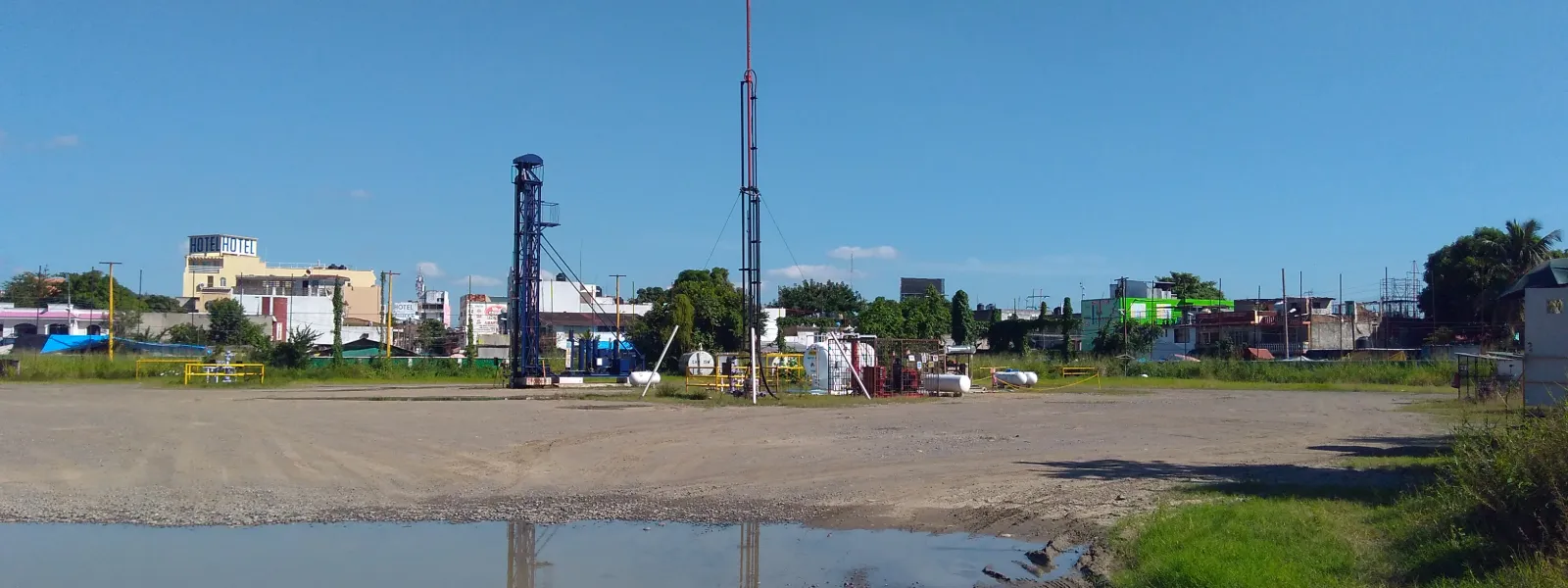
Colombia makes the right move by suspending fracking project
Credit: Claudia CamperoCiting a recent court order, Colombia’s environmental authority has suspended the licensing process for a fracking project in the Middle Magdalena Valley. The decision represents an advance in the movement to stop fracking’s expansion in Latin America.
Bogotá. In an advance for the struggle against fracking’s expansion in Latin America, Colombia’s National Environmental Licensing Authority has suspended the licensing process for a fracking project in the Middle Magdalena Valley.
With this decision, Colombia joins a growing list of communities, municipalities, and regions across Latin America and the world who have made progress to stop the expansion of fracking in their territories, many through the enactment of bans or moratoriums.
"The Environmental Authority’s decision is a positive example for nations across Latin America and the world,” said Astrid Puentes Riaño, co-executive director of AIDA. “It’s the result of an admirable civic movement and of the use of the precautionary principle as a tool to protect human health and ecosystems, and to confront the climate crisis.”
The decision to halt the process for Ecopetrol’s "APE Guane A” project is founded on the State Council’s suspension, in November 2018, of the regulatory framework for fracking in the country, citing the precautionary principle. The Interamerican Association for Environmental Defense (AIDA) supports the Council’s decision and considers the Environmental Authority’s enactment of that order to be a step in the right direction.
“In the absence of existing regulations on fracking, in Colombia we have a judicial moratorium. This implies that no project may be implemented that seeks to exploit unconventional oil and gas deposits using this technique,” explained Juana Hofman, AIDA attorney. “All activities aimed at the development of fracking activities must be suspended.”
In its decision, the Environmental Authority states:
“… The temporary suspension of the aforementioned provisions translates to those provisions being temporarily outside the legal system, which consequently means that this Environmental Authority does not have technical regulations that allow it to verify the management measures that should be included in the Environmental Impact Study, to be analyzed within the environmental assessment procedure, and thus could not determine whether or not the granting of the environmental license required for new projects in unconventional deposits was viable.”
The suspended project involves the use of hydraulic fracturing in a boggy complex located between the municipalities of Barrancabermeja and Puerto Wilches in Northeast Colombia.
Fracking, or hydraulic fracturing, is an extractive technique that proves incredibly damaging for water, air quality, human health and the climate. It emits methane, a pollutant strongly associated with global warming. Due to its negative impacts on the environment and public health, fracking has been prohibited by judicial or legislative means in many municipalities, regions and nations around the world, such as Scotland, the state of New York (USA), and the province of Quebec (Canada).
Global efforts to stop fracking’s expansion have largely been citizen-led and driven by concerns for the risks fracking poses to the climate, environment and public health. The Alliance for a Colombia Free from Fracking has been steadfast in their commitment to stopping fracking’s advance in Colombia, and should be congratulated for this important advance.
AIDA urges the Colombian government to continue down the path of prevention and to comply with its international environmental obligations to confront the climate crisis, and to protect its land, water and communities. We urge the government to deny authorizations for fracking operations in Colombia.
“Fracking is a procedure that furthers us from our climate goals, and from the energy path that all nations should be targeting” Puentes Riaño said. “Decisions like these are an invitation to seek out renewable energies that are better for our planet and our communities, not only in Colombia but around the world.”
Press Contacts:
Carlos Lozano Acosta (Colombia), AIDA, [email protected], +57 (300) 564 0282
Juana Hofman (Colombia), AIDA, [email protected], +57 (310) 884 6715
